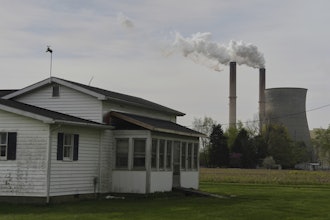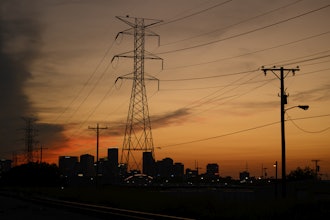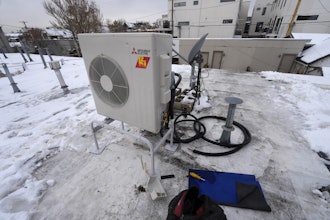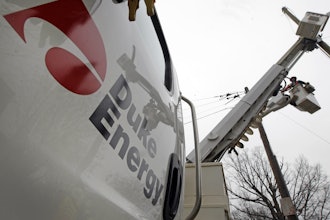
Ethiopia's controversial Nile River dam will not be completed until 2022, more than four years behind schedule, because of possible defects with the hydro-electrical plant's equipment, an official said Thursday.
The dam's construction managers have concerns about the quality of the electro-mechanical works that were handled by the country's military-run Metal and Engineering Corporation.
"We have a plan to generate power from the first two units within the coming two years and then probably the dam will be completed in the year 2022," the dam's construction manager, Kifle Hora, told The Associated Press on Thursday. Experts are assessing some electro-mechanical equipment for possible defects, he said. "Based on the assessment, we are going to devise a remedial solution which we may have to take," he said.
The assessment came after the installation of the electro-mechanical works, described by officials as one of the most sophisticated parts of the dam, were taken away from the military-run Metal and Engineering Corporation and given to other contractors. The company's former head, Maj. Gen. Kinfe Dagnew, and other senior officials were jailed recently on charges of corruption and embezzlement.
"We first noticed problems with the dam's electro-mechanical and metal works two years ago but we only started taking detailed measurements in the past few months," Ethiopia's Minister of Water, Irrigation and Electricity Minister, Sileshi Bekele, said.
"This (military) corporation has no prior experience and I highly doubt if some of the people have ever seen a hydropower plant. The government made a mistake in assigning a local contractor that has no knowledge and experience of such a complex project. In my opinion, it was a grave mistake and we are paying a price for that," Kifle said, adding that construction of other parts of the dam is continuing.
The dam's former manager, Semegnew Bekele, was found dead inside his car on July in the center of the capital, Addis Ababa. Police officials later said he committed suicide but some Ethiopians suspect foul play.
The dam's construction has created controversy in the region as Egypt fears that its agriculture would be badly affected if too much of the Nile's waters are retained each year by Ethiopia's dam. Ethiopia maintains that the dam's construction will not reduce Egypt's share of the water and that the dam is necessary for Ethiopia's development, pointing out that 60 percent of it 100 million citizens don't have access to electricity.
Latest official figures indicate the dam is now more than 65 percent complete. Once completed, it will generate about 6,400 megawatts, more than doubling Ethiopia's current production of 4,000 megawatts.






















